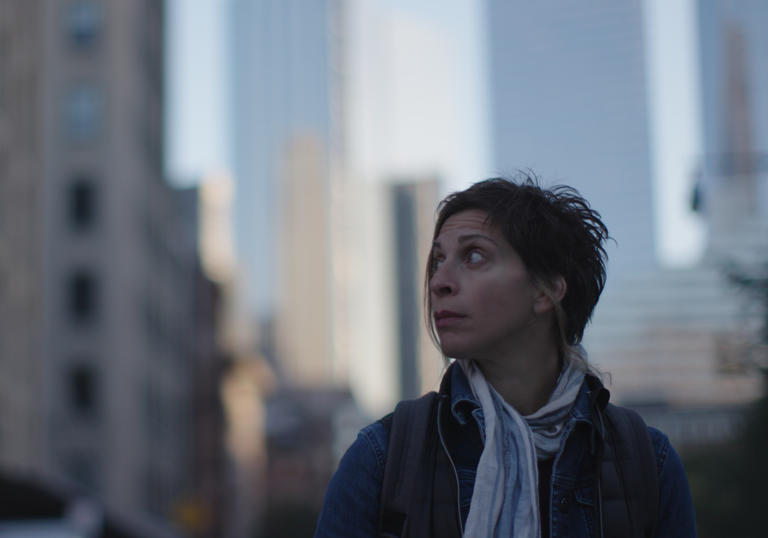The Swedish documentarist Fredrik Gertten last reached UK screens with the 2009/11 diptych of Bananas!* and Big Boys Go Bananas!*, idiosyncratically typeset single-issue bulletins on the lawsuits Dole Food launched against first its Nicaraguan pickers, and then the director himself. These were interesting dispatches, but now Gertten has his sights on a wider-reaching, possibly even universal subject: the vast and thus far unbridgeable iniquities of the housing market. Push ventures out at the side of Leilani Farha, the UN's special rapporteur on adequate housing, and very quickly spots that wherever she travels in the world - the film will whisk us from Canada and Chile, via the UK, Germany and Sweden, to the Far East - the picture is much the same: wages stagnating while property prices continue to spike, social housing being allowed to fall into disrepair, the rise of sparkling new "luxury developments" that no-one in the immediate vicinity can afford to move into, and private equity firms, unfettered by a lack of government regulation, hovering over what is already a bleakly unpromising landscape for the first-time buyer. Farha's daily meetings with housing specialists suggest a shift in our collective thinking (and, crucially, in the thinking of the rich and powerful, that which has the most immediate real-world impact): from houses for homes, which require occupation to fulfil their destiny, we've arrived at a point where houses are most commonly claimed as assets, which may need to stay vacant in order that their value may go up. Bottom line: there is a plague on all our houses, and one of the reasons is that there are certain individuals making serious bank from it.
The situation is laid out in one of those digest-docs that covers a lot of ground in pursuit of experts with something to say; if Push offers no easy solutions (save doing shots with like-minded refuseniks in a Barcelonan bar), you should emerge with a fuller understanding of the problem. The most relevant and compelling material for UK viewers will be that Gertten collected at the foot of the blackened Grenfell Tower, which confronts us here in widescreen, high-definition images, and more than ever looks like a scar on the very soul of London, no matter how urgently the authorities who signed off on its cheap, flammable cladding scurry to cover it up. For Farha and Gertten, Grenfell represents the most conspicuous symbol yet of how communities are being displaced and destroyed - a more extreme and tragic symbol than most (errant landlords have traditionally waited until properties were empty before letting them burn), but with the same result: an overnight rise in homelessness, coupled to a staggering absence of accountability. Intriguingly, Farha is far from some hammer-and-sickle-wielding Emma Goldman acolyte (she states upfront that "I don't believe that capitalism in itself is problematic", and apologises at one point for labelling developers as vultures), a moderate position that clearly allows her to go between working-class correspondents about to be turfed off the land and those moneyed nabobs who make the decisions that determine the market's direction of travel.
A leftier endeavour - perhaps a post-Parasite endeavour - would insist we need to shoo off the vultures who've been allowed to dictate the terms of the social contract for too long; that we do, in fact, need a Goldman to tear the whole rotten system down. There's a naggingly blithe detachment about Push that, for all its pertinent intel, makes it tricky to recommend unconditionally: it's a film made by an established filmmaker about a figure representing a powerful institution who has a most spacious abode of her own, and presumably a generous expenses account that permits her smooth passage around the globe. Far better she undertakes this investigative legwork than not, of course, but Gertten spends a few too many minutes around Farha, establishing her as a plucky underdog tossing pebbles at such implacable foes as the investment group Blackstone, and not nearly enough time among those Farha is pursuing these cases for; in several places, I was driven to wonder whether a filmmaker lower down the documentary food chain might have been better placed to capture the insecurity and fears that follow from being kicked to the curb.
The Avios-sponsored overview Push is going for occasionally touches down on stretches of analytical insight: Farha's mentor observes how, when we speak of new buildings going up, most people think of their careful design and conclude they must automatically be a good thing - an improvement - rather than going on to consider how they will be filled, and the purpose they surely have to serve. Gertten also works in some smartly managed material on the theme of image versus reality: his frequent cutaways to people gawping at their phones, oblivious to those around them, attain a particular piquancy when we see UN delegates updating their Insta feeds during Farha's keynote housing speech. It's just a pity that the film goes on to turn such imagery against itself via one dreadful waft of narcissism, as the rapporteur's assistant gets Farha to strike a pose before her own cameraphone with a plaintive "I don't have any pictures of you". (It's not about her, Fredrik!) Gertten's imploring us to talk, listen and collaborate more, and these are noble sentiments - but, dare I say it, they're likely to provide greater comfort to those upwardly mobile viewers paying to see Push in cinemas this weekend than they will to the family of five who've been given until the end of the week to gather their belongings and make alternative arrangements.
Push opens in selected cinemas from Friday.

No comments:
Post a Comment